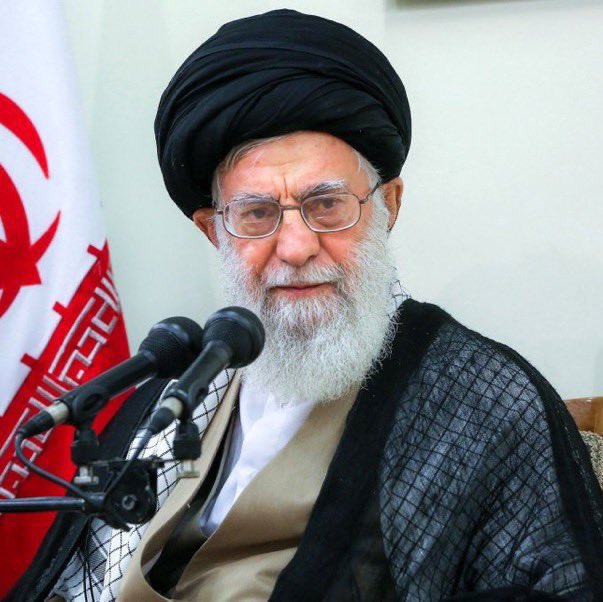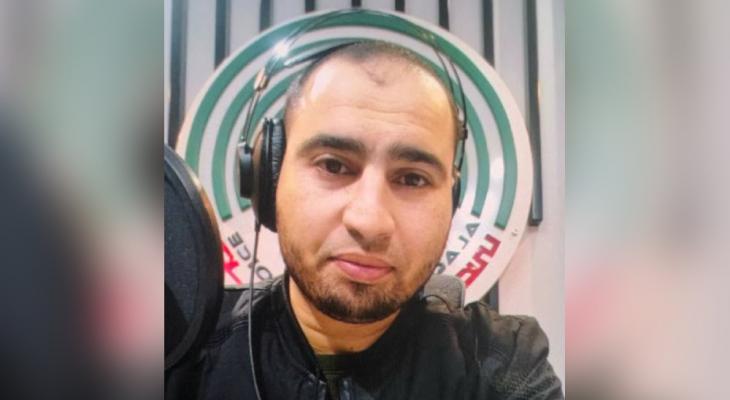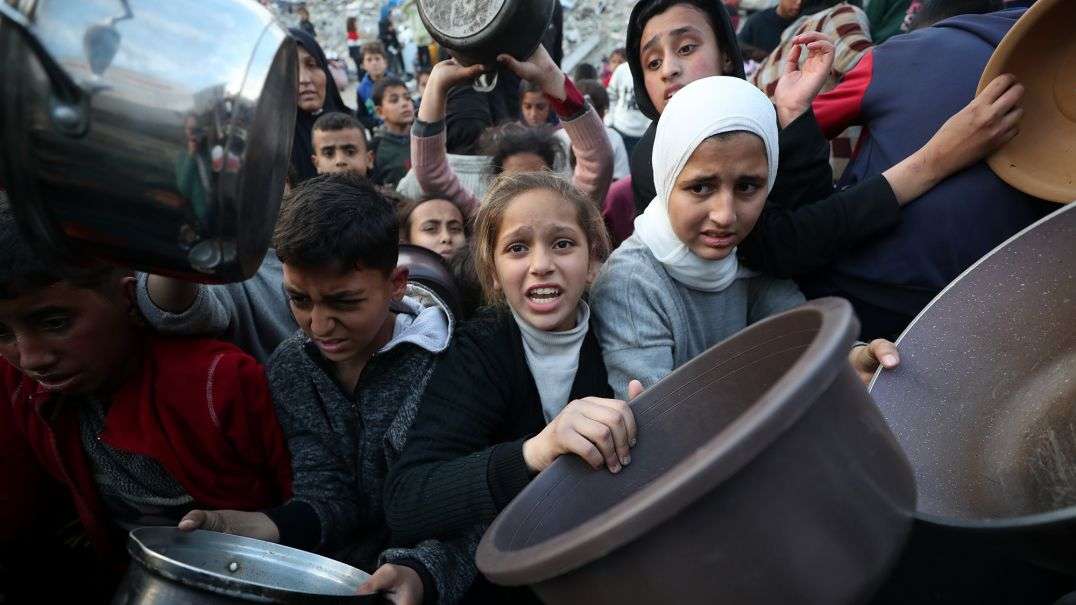Israel’s Gaza Bombing Surpasses ISIS Days
The nature of Israel’s crimes in the Gaza Strip must be denounced, particularly the crimes’ horrifying scope, methodical execution, and wide-ranging effects, which surpass those of armed groups like ISIS. While the crimes committed by ISIS have been widely denounced by the international community, the same community is now mostly silent—and therefore complicit—as Israel pursues a campaign of declared genocide that aims to exterminate the Palestinian people from their homeland.
For almost 18 months, this campaign has been running continuously.
Israeli occupation forces detonated a robot today (Thursday 3 April 2025) rigged with tonnes of explosives in the heart of the densely-populated Shuja’iyya neighbourhood in eastern Gaza City. The explosion occurred in an area packed with displaced civilians, though there was no military necessity and no combat activity in the vicinity. This act embodies the conduct of existing terrorist organizations, even surpassing them in brutality and disregard for human life, and bears no resemblance to the conduct of a state bound by international law, regardless of any attempts to distort or evade it.
21 killed
The explosion killed 21 Palestinians and injured around 100 others, the majority of them women and children. A full residential block was obliterated with its residents still inside, and this is not an isolated incident. Over recent months—particularly in the northern Gaza Strip—Israel has increasingly used explosive-laden robots in residential neighbourhoods during its ground incursions. At least 150 such detonations have resulted in the deaths of hundreds of civilians, mostly women and children, and caused wide-scale destruction to homes and other essential infrastructure.
A separate atrocity was committed on 23 March, when Israeli forces detained 15 Palestinian rescue workers from the Palestinian Red Crescent and Civil Defence, along with a United Nations staff member, before executing them extrajudicially—some while their hands were bound. Their bodies were dumped into a pit, and the ambulances they had been traveling in were destroyed. This incident is another blatant example of an intentional Israeli crime mirroring—and exceeding—the brutality of groups like ISIS, as it reveals a clear and deliberate intent to annihilate Palestinians both physically and through psychologically terrorizing residents across the Strip.
Euro-Med Monitor field teams have documented thousands of crimes committed by Israeli forces, constituting overwhelming evidence of mass atrocities. These crimes include an unprecedented pattern of violence in recent history, in terms of scale, deliberate targeting, and genocidal intent. A minimum of 58,000 Palestinians have been killed, the majority of them women and children, and most have been buried beneath the rubble of homes deliberately destroyed over their heads, while many were killed by sniper fire with clear intent. Over 120,000 individuals have been injured, and at least 39,000 children have been orphaned. The Gaza Strip’s infrastructure, including homes, hospitals, and schools, has been virtually obliterated.
Extermination Campaigns
These acts amount to one of the most extensive and systematic campaigns of extermination in contemporary history, underscoring the urgent need for international accountability, an end to Israeli impunity, and concrete action to halt further atrocities.
Israel’s methods in the Gaza Strip—particularly its mass killing of civilians—bear a striking resemblance to the tactics used by groups the international community has widely condemned as terrorist. However, the atrocities unfolding in the Strip are far more dangerous in terms of scale, brutality, and systematic intent, and cannot be understood merely as a function of violent methods or tools.
What is occurring in the Gaza Strip constitutes a full-scale genocide carried out by a state actor with international legal personality and obligations under international law to protect civilians. Instead, Israel is deploying its military, legal, judicial, and media apparatuses, and benefiting from broad international political protection, to carry out a systematic campaign of destruction against a defenceless population subjected to its settler-colonial and apartheid regime. Palestinians living under this regime are no longer subjected to exclusion, oppression, and intermittent bombardment, as in past years. Rather, Israel is now granted open legitimacy to pursue the extermination of Palestinians in the enclave—unchecked and without accountability.
These actions cannot be dismissed as random or extreme policies, but rather represent a fully-fledged model of organised state terrorism, driven by a comprehensive blueprint for annihilation and implemented in full view of the international community. These crimes are being committed with clear, declared intent to eliminate the Palestinian people as a national and collective entity, uproot those who remain on their land, erase their identity, and ultimately end their collective existence.
The shocking paradox is that these crimes—greater in scope, structure, and severity than those committed by proscribed armed groups—are not met with proportionate condemnation. On the contrary, Israel commits them under the very banner of international legitimacy. While quick to criminalise the actions of non-state terror groups, the international community has extended a false veneer of legality to Israel’s genocide, enabling its prolongation and offering total immunity to the perpetrators.
Ending this double standard is no longer a matter of choice, as it represents a direct assault on the foundations of international law and reveals a racist hypocrisy in the collective protection framework that must be addressed. Treating Israel’s crimes as exceptional and beyond accountability undermines the core principles of the global legal order and entrenches one of the most dangerous forms of impunity.
Stop the Israeli genocide
All states, both individually and collectively, must fulfil their legal obligations and take urgent action to stop Israel’s genocide in the Gaza Strip in all its forms. This includes implementing concrete measures to protect Palestinian civilians, ensuring Israel’s compliance with international legal norms and the rulings of the International Court of Justice, and guaranteeing full accountability for perpetrators of war crimes and crimes against humanity.
It is important to implement the arrest warrants issued by the International Criminal Court against the Israeli Prime Minister and Defence Minister at the earliest opportunity and ensurethese individuals’ transfer to international justice.
Furthermore, the international community must impose comprehensive economic, diplomatic, and military sanctions on Israel in response to its grave and systematic violations of international law. This includes an arms embargo; the cessation of all political, financial, and military cooperation; asset freezes of implicated officials; travel bans; and the suspension of trade privileges and bilateral agreements that provide Israel with economic benefits, enabling its continued crimes.
Finally, all relevant states and entities must hold complicit governments accountable, foremost among them the United States, along with other nations that provide Israel with direct or indirect support in executing its crimes. Any assistance or engagement in the Israeli military, intelligence, political, legal, or financial sectors, and/or cooperation with Israel’s media, contributes to the continuation of atrocities against the Palestinian people.











